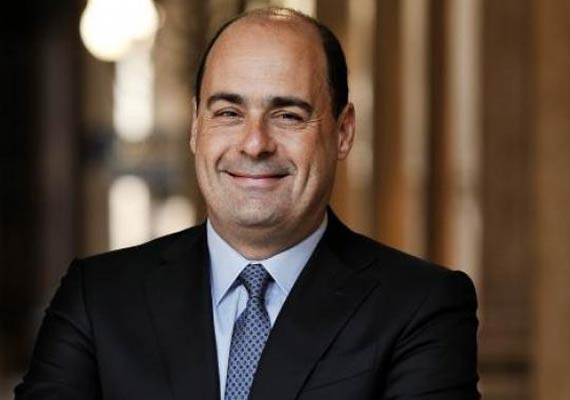Nicola Zingaretti • President of the Lazio Region
“Relations between countries are crucial for growing the market”
- Whilst in Paris for a tribute to Ettore Scola, Nicola Zingaretti talked to us about funding for international co-productions

A tribute to Maestro Ettore Scola, strongly endorsed by the President of the Lazio Region Nicola Zingaretti, to celebrate the director’s relationship with film and the French public, was held in Paris last Wednesday along with the screening of Le Bal, a film that symbolises this relationship with France. Le Bal was nominated for the Oscar for Best Foreign Language Film and won the Césars in 1984 for Best Film, Best Director and Best Soundtrack, the David di Donatello for Best Film and the award for Best Director at the Berlin Film Festival.
Cineuropa: You’re in Paris to celebrate Ettore Scola at a time when Italian film is enjoying great international success. Do you think a commitment to relations with other countries is important, both for cultural development and the development of the markets?
Nicola Zingaretti: In Paris on 24 February we organised a special event in memory of a special man, an opportunity to remember Ettore Scola and his close relationship with the French capital, to which we invited some of the artists that held him in greatest esteem and with whom he produced some unforgettable works, such as Le Bal. Ettore Scola’s films were some of the first to gain international success and recognition.
Today, too, Italian film is receiving international acclaim, and it is at times like this that relations between countries are crucial for helping the domestic market to grow and fuse with those of other nations. Exchanges are essential for the growth and economic and cultural development of all nations. Italy is well aware that culture, so film too, is, and has always been, an extraordinary springboard for the country’s economy and productivity. Investments made in this spirit are certain to generate an excellent return.
Lazio is one of the most active and most committed regions in Europe to supporting film and the audiovisual industry, today in particular with its new tender “Lazio Cinema International”, which makes €10 million in European funds available to companies looking to make international co-productions. What results are you seeing?
This tender, which we launched last October, is proving to be very effective at giving fresh momentum to the film industry of our region and promoting greater visibility internationally. We’ve thrown €10 million in European funds into the ring for small and medium-sized enterprises based in Lazio looking to co-produce. I’m proud to say that it’s been years since Lazio had so much funding available for film and audiovisuals. I should also point out that we’ve been promoting a fund for audiovisual works of €15 million to encourage internationalisation projects and the digitalisation of theatres and cinemas. These funds are to be used to give a voice to the thousands of gleaming prospects in the Lazio region. I’m thinking of Viterbo, Rieti, or the small villages and municipalities in the province of Rome and in Ciociaria. Cinema is an excellent way of portraying the wonders of a place through film. These funds are just part of the European funds we reserve for the sector. In fact, our programme provides for a total of €35 million to which the funds we set aside annually from the ordinary budget for the Film Fund are added. We hope that international productions will choose Lazio and Rome as perfect locations, and we’re ready to support them with active policies for stimulating a sector that is today more alive than ever.
The new Film Law provides for a Higher Council for Film and Audiovisual Works and guarantees greater coordination with the Regions. What are your initial thoughts on this long-awaited measure from the government?
I think the approach adopted by the government and the ministry is very positive. Coordination on audiovisual policies between the Ministry for Cultural Heritage and Activities and Tourism and our region is already very strong and structured. The €10 million tender is an excellent example. The audiovisual challenge is a global one, I think it’s very useful to identify tools that give everyone, both industry professionals and the Regions and local bodies opportunities and places to share active policies. To get that very agility for action on the international market we’re re-launching our Film Commission and national coordination will no doubt be very useful in this.
(Translated from Italian)
Did you enjoy reading this article? Please subscribe to our newsletter to receive more stories like this directly in your inbox.















